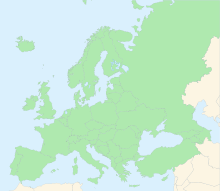European Heritage Days

European Heritage Days (EHD) is a joint action of the Council of Europe and the European Commission involving all 50 signatory states of the European Cultural Convention under the motto, Europe: a common heritage. The annual programme offers opportunities to visit buildings, monuments and sites, many of which are not normally accessible to the public. It aims to widen access and foster care for architectural and environmental heritage. These events are also known as Doors Open Days and Open Doors Days in English-speaking countries.
The event began in France in 1984, with La Journée Portes Ouvertes, sponsored by the Ministry of Culture. In 1985, in Granada, at the 2nd European Conference of Ministers responsible for Architectural Heritage, the French Minister of Culture proposed that the project be internationalised under the Council of Europe. The Netherlands held their first Open Monumentendag in 1987. Sweden and the Republic of Ireland joined in 1989, and Belgium and Scotland in 1990.
In 1991 these events were united as European Heritage Days at the initiative of the Council of Europe, supported by the EU. By 2010, 50 signatory states of the European Cultural Convention had joined the EHDs.
The Directorate General IV – Education, Culture and Heritage, Youth and Sport of the Council of Europe, in close cooperation with the Directorate General for Education and Culture of the European Commission, ensures the general orientation, definition and execution of the tasks to be achieved within the framework of the EHD. The Secretariat of the EHD is carried out by the Directorate of Culture and Cultural and Natural Heritage, under the responsibility of the Council of Europe’s Steering Committee for Cultural Heritage.
Responsible institutions per European country

 Andorra: "Jornades europees del patrimoni" by Patrimoni Cultural
Andorra: "Jornades europees del patrimoni" by Patrimoni Cultural Austria: "Tag Des Denkmals" by Bundesdenkmalamt
Austria: "Tag Des Denkmals" by Bundesdenkmalamt Belgium:
Belgium:
 France: "Journées européennes du patrimoine" under the auspices of the Ministry of Culture
France: "Journées européennes du patrimoine" under the auspices of the Ministry of Culture Germany: "Tag des offenen Denkmals" by Deutsche Stiftung Denkmalschutz
Germany: "Tag des offenen Denkmals" by Deutsche Stiftung Denkmalschutz Ireland: Heritage Week by the Heritage Council
Ireland: Heritage Week by the Heritage Council Italy: "Giornate Europee del Patrimonio" by Ministero per i Beni e le Attività Culturali
Italy: "Giornate Europee del Patrimonio" by Ministero per i Beni e le Attività Culturali Latvia: "Eiropas kultūras mantojuma dienas" by National Heritage Board of Latvia[1]
Latvia: "Eiropas kultūras mantojuma dienas" by National Heritage Board of Latvia[1] Netherlands: "Open Monumentendag" by Stichting Open Monumentendag[2]
Netherlands: "Open Monumentendag" by Stichting Open Monumentendag[2] Poland: "Europejskie Dni Dziedzictwa" ("European Heritage Days") by National Heritage Board of Poland[3]
Poland: "Europejskie Dni Dziedzictwa" ("European Heritage Days") by National Heritage Board of Poland[3] Portugal: "Jornadas Europeias do Património" by Direção Geral do Património Cultural
Portugal: "Jornadas Europeias do Património" by Direção Geral do Património Cultural Spain: "Las Jornadas Europeas de Patrimonio" by Instituto del Patrimonio Cultural de España (Ministry of Culture)
Spain: "Las Jornadas Europeas de Patrimonio" by Instituto del Patrimonio Cultural de España (Ministry of Culture)
 Catalonia: "Les Jornades Europees de Patrimoni" by Patrimoni Cultural
Catalonia: "Les Jornades Europees de Patrimoni" by Patrimoni Cultural
 United Kingdom:
United Kingdom:
 England: Heritage Open Days by English Heritage. London has a separate event, Open House London.
England: Heritage Open Days by English Heritage. London has a separate event, Open House London. Scotland: Doors Open Days by Scottish Civic Trust
Scotland: Doors Open Days by Scottish Civic Trust Wales: Open Doors Days (Welsh: Drysau Agored) by Civic Trust for Wales
Wales: Open Doors Days (Welsh: Drysau Agored) by Civic Trust for Wales Northern Ireland: European Heritage Open Days
Northern Ireland: European Heritage Open Days
 Switzerland: "Europäischer Tag des Denkmals" by the Swiss Information Centre for Cultural Heritage Conservation
Switzerland: "Europäischer Tag des Denkmals" by the Swiss Information Centre for Cultural Heritage Conservation
This idea is popular outside Europe, too, with similar schemes in Canada (since 1974 - Heritage Day (Alberta)), the US[citation needed], Australia,[4] and other lands, at different times of year. In Argentina and Uruguay the corresponding Día del Patrimonio is held on the last weekend of September, while in Chile the same event is held on the last Sunday of May.
See also
References
- ^ National Heritage Board of Latvia
- ^ Stichting Open Monumentendag
- ^ European Heritage Days in Poland
- ^ "Australian Heritage Week". Australian Government, Department of the Environment.
External links
- European Heritage Days — includes links to the national sites of all participants
- Home page
